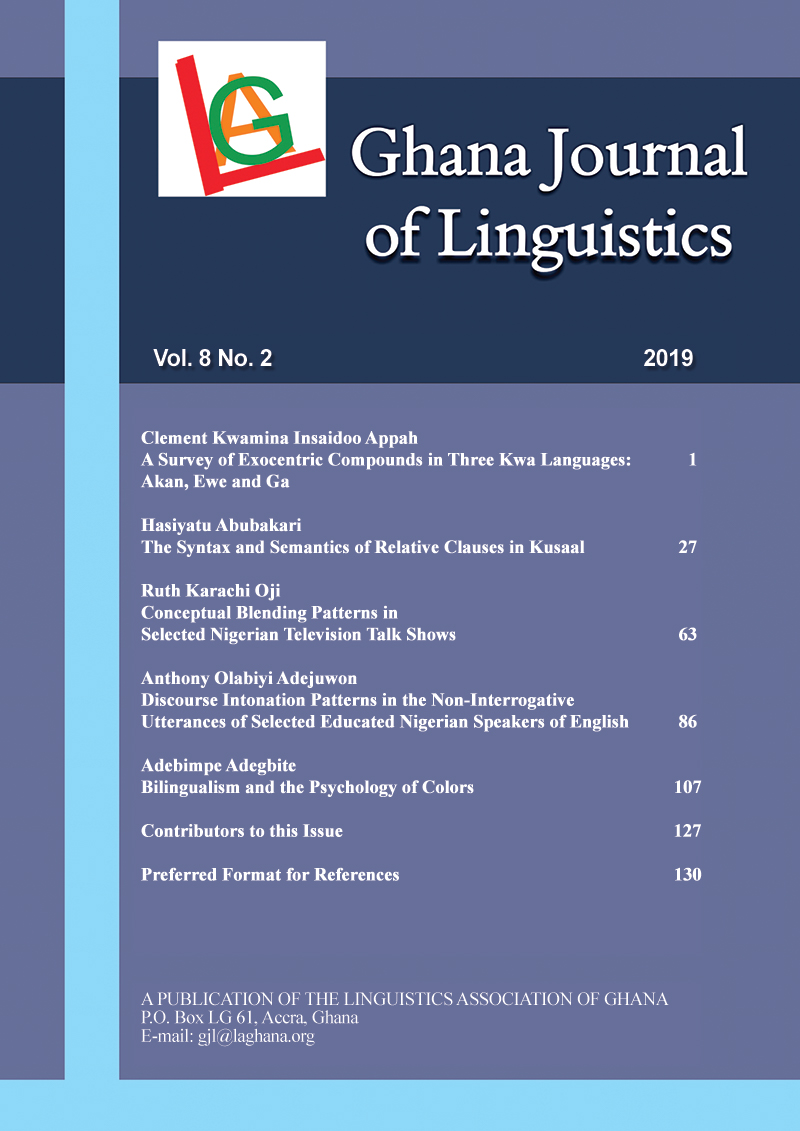Main Article Content
Discourse Intonation Patterns in The Non-Interrogative Utterances of Selected Educated Nigerian Speakers of English
Abstract
Previous studies on English intonation have concentrated on its rule-governed patterns; people’s spontaneous utterance intonational choice characteristics are inadequately explored. This study investigated the interactionally-motivated intonation patterns of selected educated Nigerian speakers of English (ENSE) to determine the conformity of their spontaneous speech intonation patterns with their interactional context. David Brazil’s Discourse Intonation (DI) model provided the theoretical framework. Thirty-two excerpts were purposively sampled from the spontaneous utterances of 17 purposively selected electronic media participants (Group A) and 15 focus group discussion participants (Group B). Structure and centrality to the messages of the excerpts informed the selection of the analysed non-interrogative tone units. Data were collected using textual analysis, FGD and questionnaire. Frequency and analysis of variance were used for quantitative analysis. The participants’ non-interrogative tone-unit intonation patterns largely ran counter to DI, with 7 excerpts (41.2%) from Group A and 5 (33.3%) from Group B largely conforming to DI (p = 0.642), even when they did not necessarily obey formalised rules. Statistical p-value, being above 0.05, showed no statistically significant difference in the mean between the two groups. The selected ENSE’s intonational choices ran contrary to DI. ENSE’s natural speech intonational choices are generally inconsistent as they follow no specific set of rules.






